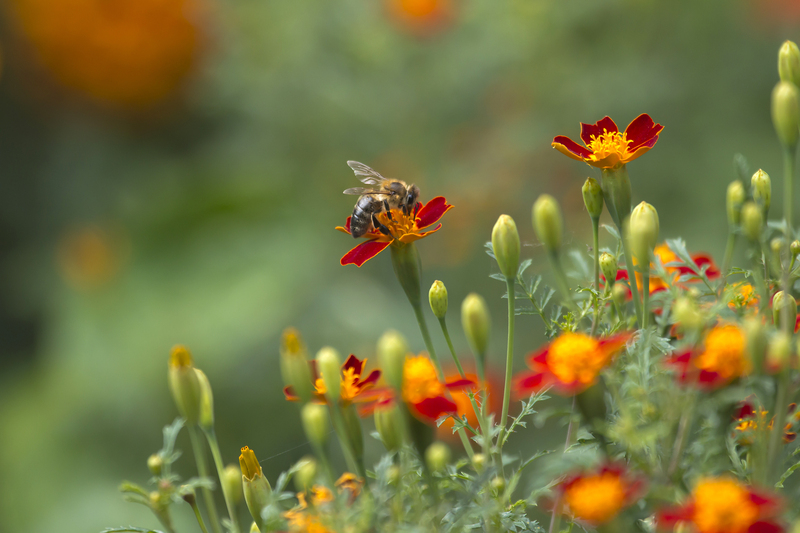Optimizing Garden Health During the Winter Months
Posted on 12/09/2025
Optimizing Garden Health During the Winter Months
Winter doesn't mean your garden must be ignored. In fact, with the right strategies, your garden can thrive even as temperatures plunge. This article provides in-depth guidance for optimizing garden health during the winter months--helping your plants survive, soil rejuvenate, and landscape look its best, all while preparing for a vibrant spring. Whether you are a seasoned green thumb or a new gardener, these winter garden maintenance tips will ensure that your outdoor haven remains healthy, resilient, and beautiful year-round.
Why Winter Garden Care Matters
Many gardeners assume that colder weather means downtime for outdoor spaces. However, neglecting garden health in winter can lead to damaged plants, depleted soil, pest infestations, and more work when the seasons change. Proactive steps to maintain your garden during winter pay off by:
- Preventing plant stress and winter kill
- Preserving soil fertility and structure
- Minimizing weed and pest problems
- Ensuring an earlier and more productive spring
Understanding Your Garden's Winter Needs
Every garden has unique winter care requirements based on local climate, soil type, plant selection, and exposure. Assess what your landscape needs by considering:
- Hardiness zone - What level of cold can your plants withstand?
- Drainage and moisture - How does your soil retain or shed water in winter?
- Sun/shade - How does the angle of the winter sun affect your beds?
- Microclimates - Are there protected or wind-exposed areas?

Preparing Your Garden for Winter
Cleanup and Pruning
Start with a thorough garden cleanup in late autumn. Remove spent annuals, diseased plant material, and weeds. Cutting back perennials depends on the species--some benefit from being left standing for winter interest and wildlife value, while others should be trimmed to prevent disease.
- Rake and remove fallen leaves (unless using them as mulch).
- Prune dead, damaged, or crossing branches from trees and shrubs (but avoid heavy pruning of spring-flowering bushes).
- Destroy infected plant debris rather than composting it to prevent overwintering of pests and diseases.
Soil Care and Protection
Optimizing soil health is crucial during colder months. Winter is an ideal time to amend your soil so that it will be ready to nourish plants come spring.
- Test your soil to determine nutrient needs and pH adjustments.
- Apply organic matter such as compost or well-rotted manure to nourish microbes and improve texture.
- Mulch garden beds with straw, shredded leaves, bark chips, or cover crops to insulate roots and suppress winter weeds.
- Cover exposed ground to prevent nutrient loss through erosion and leaching.
Protecting Perennials and Tender Plants
Optimize your winter garden health by safeguarding vulnerable plants. Some species require extra protection during harsh winters:
- Apply a thicker layer of mulch (3-6 inches) around perennial crowns to moderate soil temperature.
- Use burlap wraps or plant covers for roses, young trees, or sensitive shrubs.
- Move potted plants to sheltered locations--close to foundations or in unheated garages--for extra warmth.
- For bulbs and tubers, dig up and store gladiolus, dahlia, and canna in a frost-free place after the first light frost.
Maintaining Garden Health Throughout Winter
Watering Wisely
Even in winter, plants need moisture, especially evergreens. Dry winds can desiccate foliage, and periods of drought may leave roots vulnerable. Optimize hydration by:
- Watering deeply before the soil freezes, especially around new plantings or evergreens.
- Monitoring rainfall and supplementing during dry spells when the ground isn't frozen.
- Avoiding overwatering--poor drainage can lead to root rot in winter.
Winterizing Your Lawn
Lawns require unique care when temperatures drop. To optimize lawn health during the winter months:
- Rake leaves regularly to prevent mold and bare patches.
- Apply a fall/winter fertilizer high in potassium and low in nitrogen to strengthen roots.
- Avoid excessive foot traffic to minimize soil compaction and turf damage.
Protecting Trees and Shrubs
Trees and shrubs are the backbone of your landscape. Optimizing their winter health prevents frost cracks and other injuries:
- Wrap young tree trunks with tree guards or protective sleeves to prevent sunscald and rodent damage.
- Mulch the root zone, but keep mulch away from direct contact with the trunk.
- Remove heavy snow from limbs, but let ice melt naturally to avoid breakage.
Special Winter Strategies for Vegetable and Herb Gardens
Using Cold Frames and Cloches
Extend the growing season and protect crops by employing cold frames, hoop houses, and cloches. These structures:
- Provide extra warmth and shelter for hardy greens, carrots, and root vegetables.
- Allow harvesting of fresh herbs well into winter.
Planting Winter Crops and Cover Crops
- Sow hardy winter vegetables like kale, spinach, and mache in the fall for cold-season harvests.
- Plant cover crops (e.g., rye, vetch, clover) to fix nitrogen, prevent erosion, and enhance soil fertility for spring.
Boosting Biodiversity and Attracting Wildlife
Winter can be a tough time for beneficial insects and birds that play a crucial role in optimizing garden health. Support biodiversity by:
- Leaving some seed heads and dried flowers for winter food and shelter.
- Providing bird feeders and clean, unfrozen water sources.
- Planting native shrubs that produce berries or dense cover for wildlife.
Pest and Disease Management in Winter Gardens
Just because it's cold doesn't mean pests and diseases disappear. Many overwinter in soil, plant debris, or bark. Keep your garden healthy by:
- Inspecting plants and pruning away infested growth in autumn.
- Cleaning tools and pots with a mild bleach solution before storing.
- Avoiding excess mulch near stems--this can harbor slugs and other pests.
- Rotating crops each year in vegetable beds to disrupt disease cycles.
Planning Ahead for Spring Success
Optimizing winter garden health doesn't end with protection--it's also about preparation. Use winter downtime for strategic planning, tool care, and learning:
- Clean and sharpen garden tools, repair fencing, and organize your shed.
- Order seeds and plan new plantings for the upcoming season.
- Reflect on last year's successes and challenges to refine your approach.

Frequently Asked Questions About Winter Garden Health Optimization
Do I need to water my garden in winter?
Yes, in drier climates or during snowless spells, intermittent watering of evergreens and newly planted trees is crucial. However, avoid overwatering where drainage is poor or soil is frozen.
Is it okay to prune trees and shrubs in winter?
Light pruning of dead or damaged wood is fine, but save major cuts for late winter or early spring before new growth starts--except for spring-flowering shrubs, which are best pruned after blooming.
What is the best mulch for winter garden protection?
Organic mulches such as straw, shredded leaves, bark chips, and compost insulate soil, retain moisture, and enrich nutrients as they break down. Avoid mulching with materials that compact and exclude water or air.
Can I plant anything during the winter months?
In milder regions, winter vegetable crops and cover crops can thrive under protection. Otherwise, use this time to prep soil and plan plantings for spring.
Conclusion: Enjoy a Healthy, Optimized Winter Garden
Optimizing garden health during the winter months involves a combination of preparation, protection, and ongoing maintenance. By taking active steps--such as cleaning up, amending soil, mulching, protecting plants, supporting beneficial wildlife, and staying vigilant for pests--you lay a strong foundation for a lush and healthy landscape once spring returns.
With these winter gardening techniques, your garden will not only survive the colder months but emerge stronger, healthier, and more beautiful in the next growing season.
Embrace winter as an opportunity to nurture your garden's vital systems and optimize its year-round health--your effort now will reward you for seasons to come!



